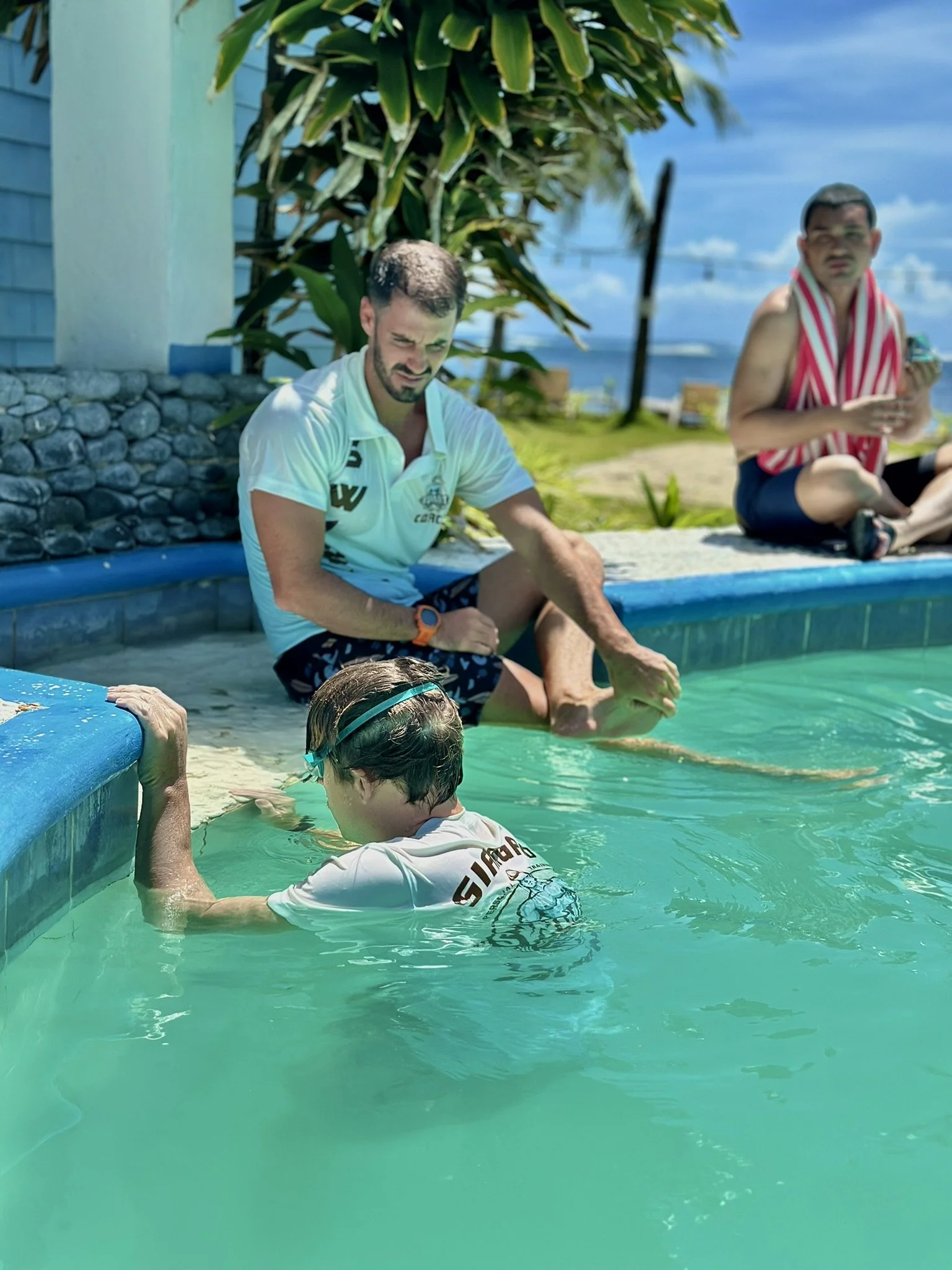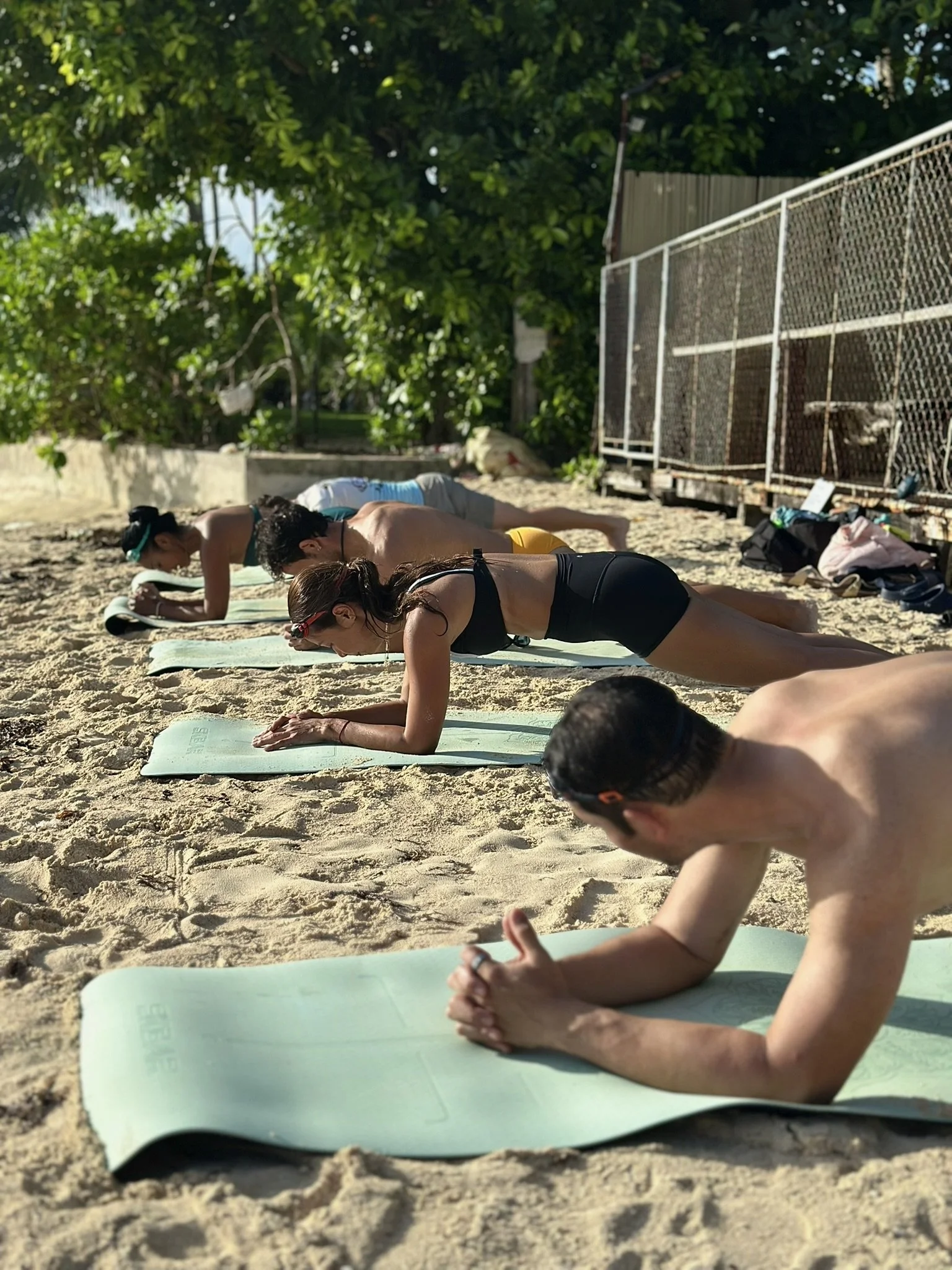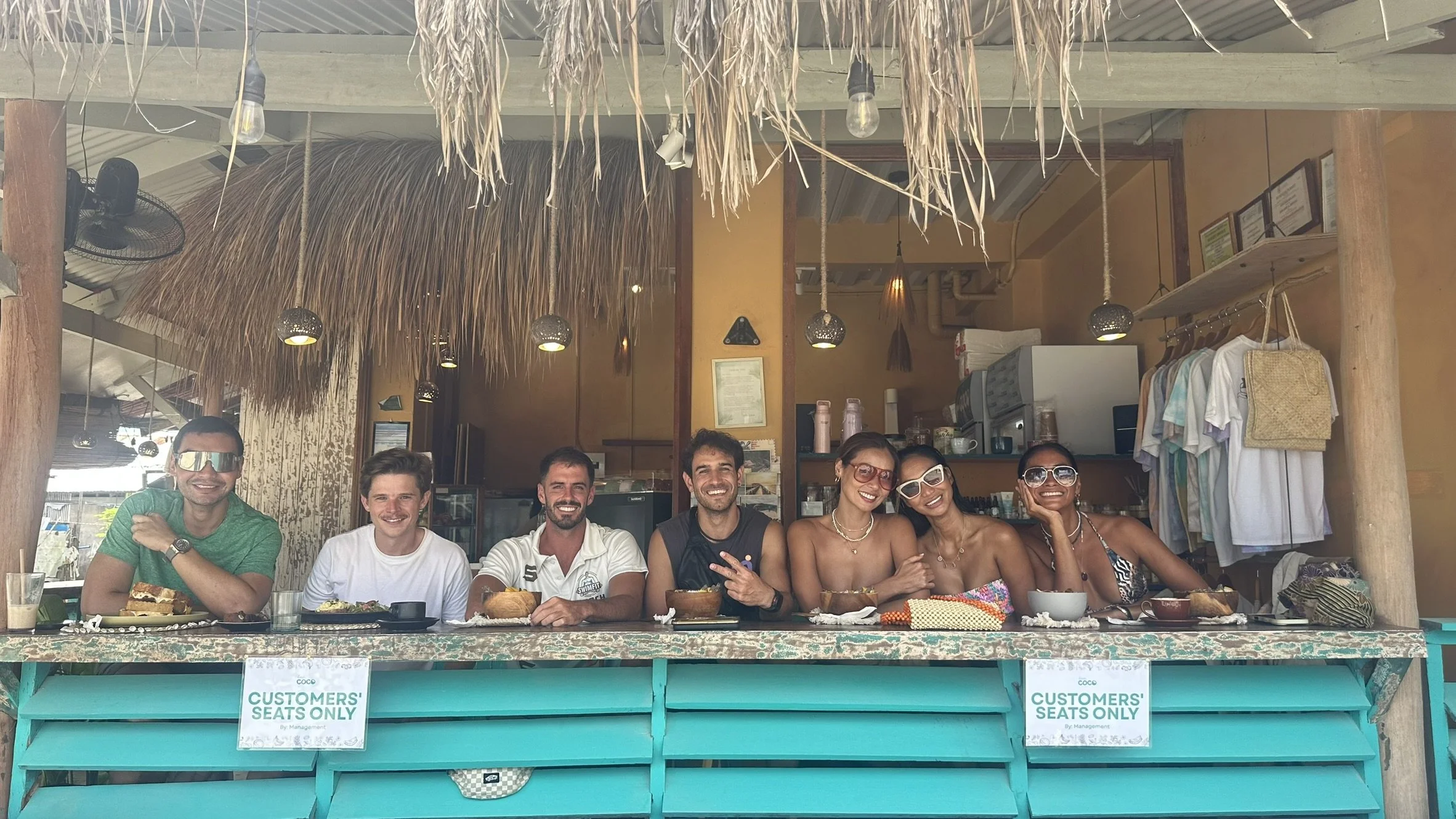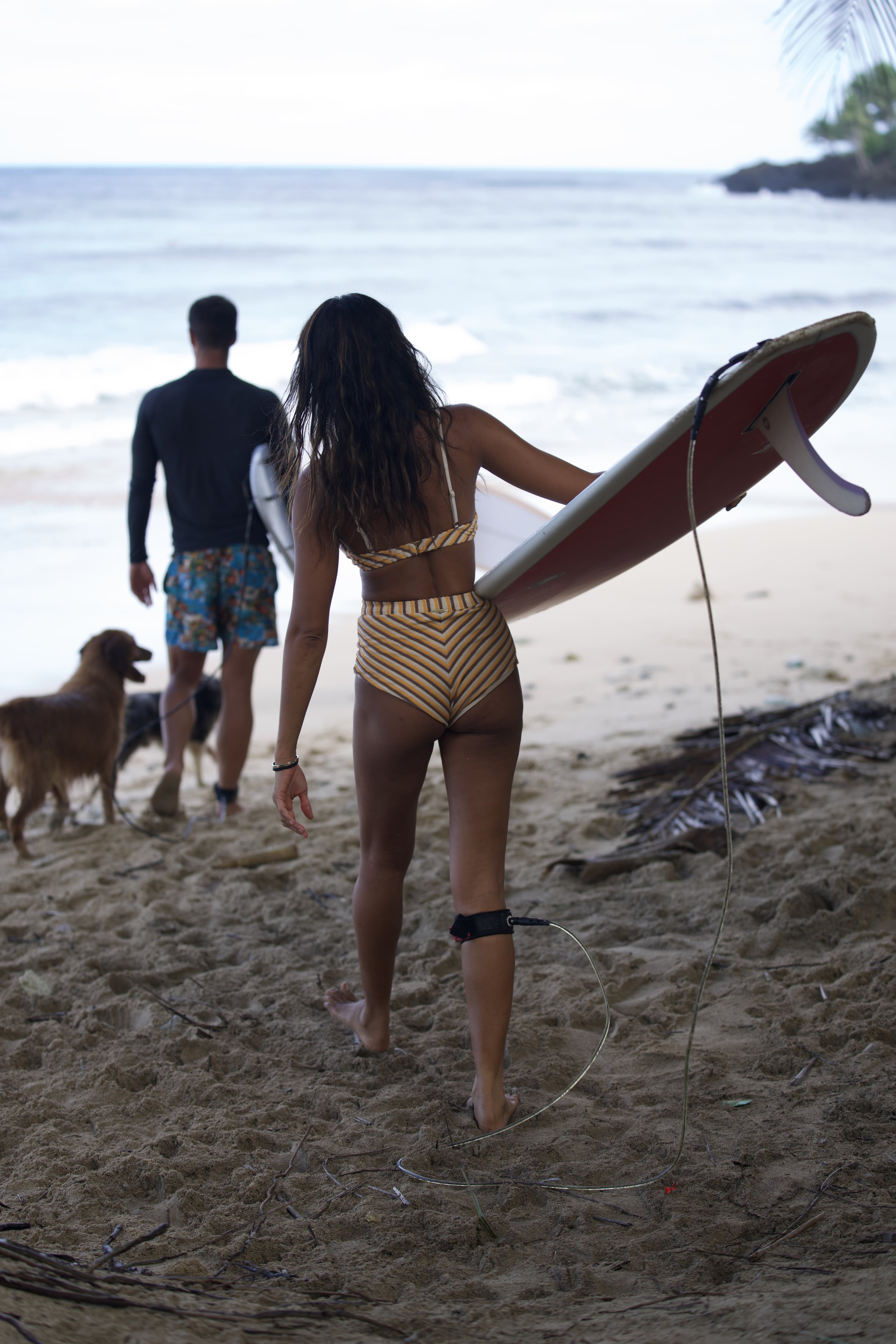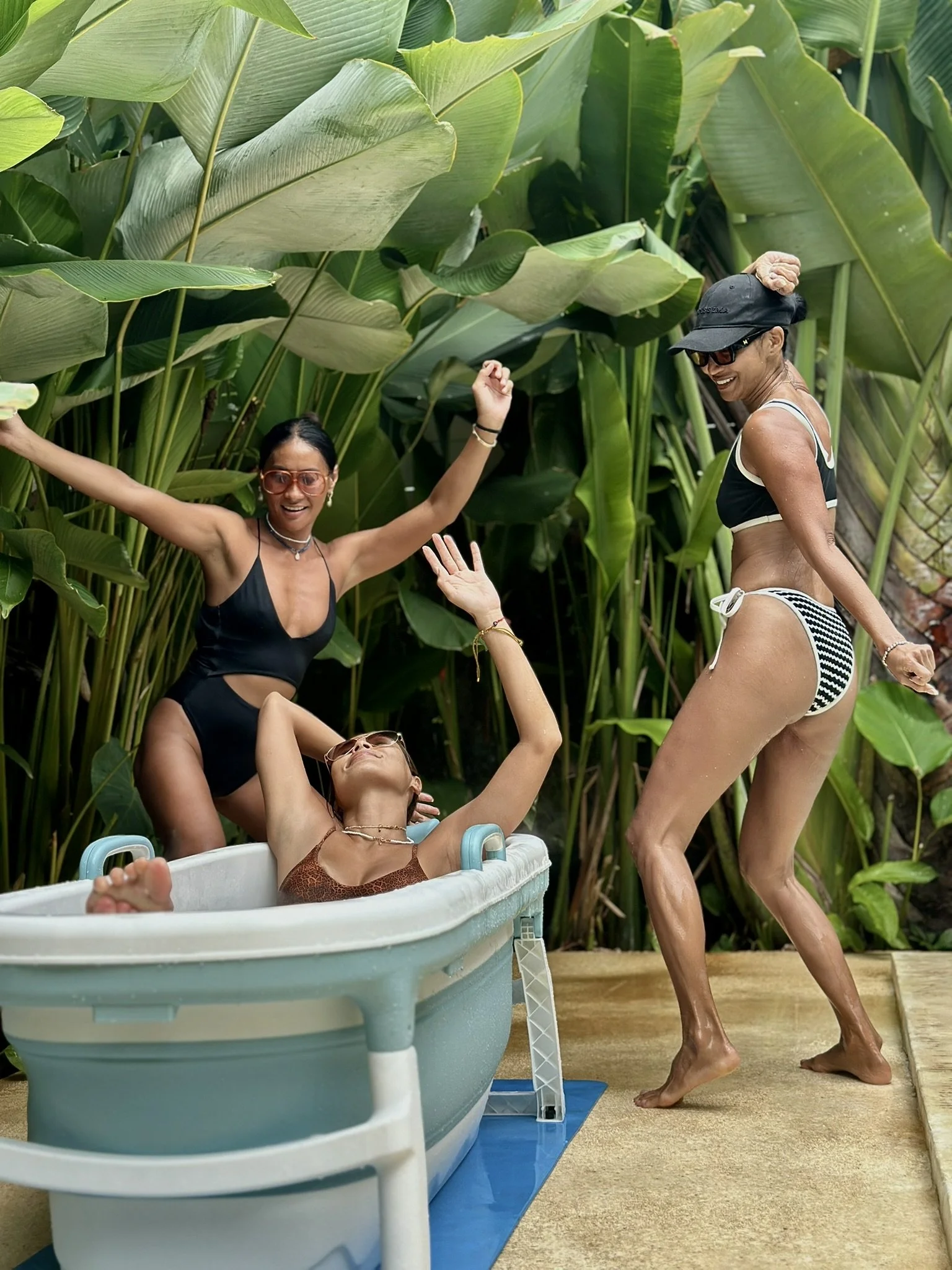From Land to Sea: Expert Tips to Transform Your Functional Training, Swimming, and Surfing Retreat
Introduction
Embarking on a fitness retreat is more than just a vacation—it's an investment in your health, strength, and personal growth. Whether you're a seasoned athlete or someone looking to jumpstart a more active lifestyle, a retreat focused on functional training, swimming, and surfing offers a unique opportunity to challenge yourself in dynamic ways. But how do you ensure you're getting the most out of this immersive experience?
We sat down with Jake Rodriguez, a certified functional training specialist and aquatic sports coach with over 12 years of experience leading fitness retreats in coastal destinations worldwide. Jake has helped hundreds of participants transform their approach to movement, water confidence, and overall fitness. In this exclusive interview, he shares his insider knowledge on how to prepare for, maximize, and maintain the benefits of your fitness retreat long after you've returned home. Whether you're nervous about catching your first wave or eager to master advanced functional movements, these expert insights will help you make the most of every moment.
Arrive Prepared: The Pre-Retreat Game Plan
Start Building Your Foundation Early
According to Jake, one of the biggest mistakes participants make is showing up completely unprepared. "I see people arrive who haven't exercised in months, and they're shocked when their body protests on day one," he explains. "You don't need to be in perfect shape, but having a baseline level of fitness makes a world of difference."
Jake recommends starting a simple preparation routine at least four to six weeks before your retreat. Focus on basic functional movements like squats, lunges, planks, and push-ups. "These compound movements mirror what you'll be doing during training sessions," he notes. "They'll also help prevent injury and reduce the intensity of muscle soreness during your first few days."
For the swimming component, Jake suggests getting comfortable in the water if you're not already a confident swimmer. "Even just spending 20-30 minutes twice a week doing basic laps or treading water will build your water confidence and cardiovascular endurance," he advises.
Set Clear, Personal Goals
Before you even pack your bags, Jake emphasizes the importance of defining what success looks like for you personally. "Are you here to lose weight? Build strength? Conquer a fear of the ocean? Learn to surf? Having clarity on your 'why' helps you stay motivated when things get challenging," he says.
Write down two or three specific goals and share them with your trainer on arrival. This allows them to provide personalized modifications and encouragement tailored to your objectives.
Embrace the Process: Mindset Matters More Than You Think
Leave Your Ego at the Door
One of Jake's most passionate pieces of advice centers on mindset. "The participants who get the most out of these retreats are the ones who embrace being beginners," he states. "If you're comparing yourself to others or trying to prove something, you're missing the point entirely."
Functional training, swimming techniques, and surfing all require learning proper form and building body awareness. "I'd rather see someone do a perfect bodyweight squat than a sloppy weighted one," Jake emphasizes. "Quality over quantity, always. And in surfing, everyone falls—it's literally part of the learning process."
Stay Present and Patient
Jake also stresses the importance of being mentally present. "Put your phone away during sessions. Don't worry about getting the perfect Instagram shot of you on a surfboard. Focus on feeling how your body moves, listening to the ocean, and connecting with the experience," he advises.
Progress isn't always linear, especially when learning a complex skill like surfing. "Some days the waves won't cooperate. Some days your body will feel tired. That's completely normal," Jake reassures. "Trust the process and celebrate small victories—they all add up."
Fuel Your Performance: Nutrition and Recovery Essentials
Eat to Support Your Activity Level
The physical demands of a multi-activity retreat require proper nutrition. Jake emphasizes that this isn't the time for restrictive dieting. "You're going to be burning significantly more calories than usual. Your body needs quality fuel—lean proteins, complex carbs, healthy fats, and tons of vegetables," he explains.
"Stay hydrated constantly, especially in warm coastal climates," Jake warns. "Dehydration is the fastest way to derail your performance and recovery. I tell participants to drink water before they feel thirsty."
He also recommends eating within 30-60 minutes after intense sessions. "A combination of protein and carbohydrates helps your muscles recover and rebuild. Many retreats provide post-workout snacks—take advantage of them."
Prioritize Sleep and Active Recovery
Perhaps surprisingly, Jake identifies sleep as one of the most underrated aspects of retreat success. "Your body does its repair work while you sleep. Skimp on rest, and you'll be exhausted, prone to injury, and unable to perform at your best," he cautions.
He recommends aiming for 7-9 hours per night and incorporating active recovery practices. "Stretching, foam rolling, gentle yoga, or even a leisurely swim can help reduce soreness and improve flexibility," Jake suggests. "Most quality retreats build these recovery sessions into the schedule—don't skip them thinking you need to go hard every single session."
Master the Fundamentals: Training-Specific Strategies
Functional Training: Build Real-World Strength
When it comes to functional training sessions, Jake's philosophy is straightforward: focus on movement patterns, not muscles. "We're training your body to move better in all directions—pushing, pulling, squatting, rotating, carrying," he explains. "This translates directly to better surfing, stronger swimming, and improved everyday life."
His top tip? "Engage your core in everything. Whether you're doing a kettlebell swing or holding a plank, your core is your power center. Master core stability, and everything else becomes easier."
Swimming: Efficiency Over Speed
For swimming portions, Jake emphasizes technique over distance. "Many people try to muscle their way through the water, which is exhausting and inefficient," he notes. "Focus on streamlining your body position, proper breathing rhythm, and smooth, controlled strokes."
He recommends asking for video feedback if available. "Seeing yourself swim is eye-opening. Small adjustments to your head position or arm entry can dramatically improve your efficiency."
Surfing: Respect the Ocean
Surfing is often the most intimidating component for beginners, but Jake insists it's also the most rewarding. "First and foremost, respect the ocean. Always listen to your instructors about safety, currents, and conditions," he stresses.
For first-timers, Jake's advice is practical: "Master the pop-up on land before you even hit the water. It's all about muscle memory. Also, accept that you'll spend most of your first sessions falling and paddling—that's normal and it's excellent exercise."
He adds, "Don't get discouraged if you don't stand up on your first day. Some people get it immediately; others need more time. Either way is fine. Enjoy the process of reading waves, feeling the ocean's rhythm, and gradually building your skills."
Bring It Home: Sustaining Your Progress After the Retreat
Create a Realistic Post-Retreat Plan
Jake is adamant that the retreat shouldn't be a one-off event but rather a catalyst for lasting change. "Before you leave, sit down and map out how you'll maintain your momentum," he advises. "What can you realistically commit to? Maybe it's three functional training sessions per week, weekly swimming, or finding a local surf spot."
He suggests taking notes throughout your retreat about exercises, techniques, and modifications that worked well for you. "These become your personal playbook when you return to regular life," Jake explains.
Find Your Community
One of the most powerful aspects of fitness retreats is the community connection. "Exchange contact information with fellow participants. Join online groups. Find local classes or training partners," Jake encourages. "Having accountability and social support dramatically increases your chances of sticking with your new habits."
He also recommends seeking out specialists in your area—functional training gyms, swim coaches, or surf schools. "Keep learning and progressing. The retreat was just the beginning."
Conclusion
A fitness retreat focused on functional training, swimming, and surfing offers an unparalleled opportunity to challenge yourself, build new skills, and transform your relationship with movement and the ocean. As Jake Rodriguez emphasizes throughout our conversation, success comes down to preparation, mindset, proper recovery, and a commitment to continued growth.
By arriving with a baseline level of fitness, setting clear personal goals, embracing the learning process with humility, fueling your body properly, and focusing on fundamental techniques, you'll position yourself to extract maximum value from every session. Remember that progress isn't always linear, and comparing yourself to others serves no purpose. Your journey is uniquely yours.
Most importantly, view your retreat as a launchpad rather than a destination. The real transformation happens when you integrate these practices and lessons into your daily life back home.
Ready to dive in? Start preparing today—your future self will thank you. And when you're riding that first wave or crushing a challenging functional training circuit, remember: you earned this moment through dedication, patience, and courage. Now go make it count.

